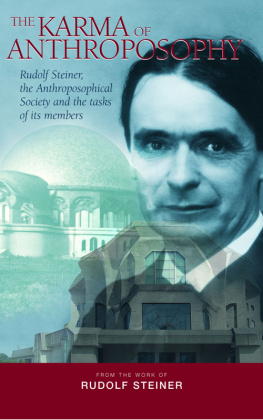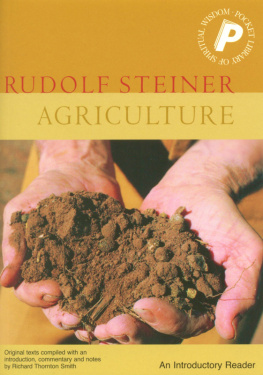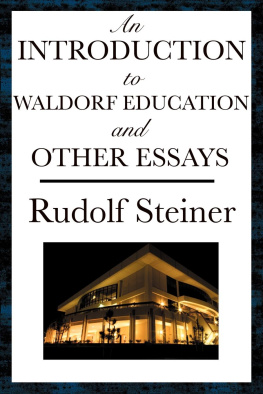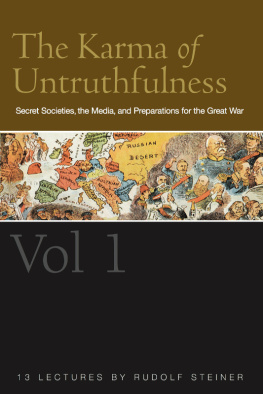Rudolf Rocker - The Tragedy of Spain
Here you can read online Rudolf Rocker - The Tragedy of Spain full text of the book (entire story) in english for free. Download pdf and epub, get meaning, cover and reviews about this ebook. publisher: Text::Muse, genre: Politics. Description of the work, (preface) as well as reviews are available. Best literature library LitArk.com created for fans of good reading and offers a wide selection of genres:
Romance novel
Science fiction
Adventure
Detective
Science
History
Home and family
Prose
Art
Politics
Computer
Non-fiction
Religion
Business
Children
Humor
Choose a favorite category and find really read worthwhile books. Enjoy immersion in the world of imagination, feel the emotions of the characters or learn something new for yourself, make an fascinating discovery.

- Book:The Tragedy of Spain
- Author:
- Publisher:Text::Muse
- Genre:
- Rating:3 / 5
- Favourites:Add to favourites
- Your mark:
- 60
- 1
- 2
- 3
- 4
- 5
The Tragedy of Spain: summary, description and annotation
We offer to read an annotation, description, summary or preface (depends on what the author of the book "The Tragedy of Spain" wrote himself). If you haven't found the necessary information about the book — write in the comments, we will try to find it.
The Tragedy of Spain — read online for free the complete book (whole text) full work
Below is the text of the book, divided by pages. System saving the place of the last page read, allows you to conveniently read the book "The Tragedy of Spain" online for free, without having to search again every time where you left off. Put a bookmark, and you can go to the page where you finished reading at any time.
Font size:
Interval:
Bookmark:
Printed by Freie Arbeiter Stimme, 45 West 17th Street, New York, N.Y., October, 1937
Retrieved on April 26, 2009 from dwardmac.pitzer.edu
July 19th was the anniversary of the day on which a gang of militarist adventurers rose against the republican regime in Spain and, with the assistance of outside powers and foreign troops, plunged the country into a bloody war. This murderous war has thus far devoured nearly a million human lives, among them thousands of women and children, and has transformed wide stretches of the country into desert wastes. The profound tragedy of this bloody drama lies in the fact that it is not just an ordinary civil war, but a struggle, as well, between two different foreign power-groups that is being waged today on Spanish soil. Two hostile imperialist camps are struggling for the natural resources of a foreign country and the strategic advantage of its coasts. The prosecution of this war is, moreover, having an unmistakable influence on the struggle of the Spanish people for freedom, and this influence is today constantly manifesting itself more clearly in the intestine warfare between the revolutionary and the counter-revolutionary forces of the country.
One cannot understand the significance of these occurrences at all unless one takes sufficiently into account the powerful influence of the foreign capital that is invested in Spain. Here is the key to the attitude of England and France and their so-called policy of neutrality, and at the same time the explanation of the ambiguous role which the government of Soviet Russia has played from the beginning, and still plays in the bloody tragedy of the Spanish people.
A point of decisive importance lies in the relation between Spanish agriculture and the industries of the country. So far as the ownership of the land is concerned, the soil of the country was before the revolution almost exclusively in the hands of Spanish owners, although the conditions in individual sections of the country were very different. In many provinces, especially in the north, small landowners constitute the overwhelming majority of the population; in others, in the Levante, for example, and in Catalonia, the soil is worked by small tenant farmers who have no proprietary rights in it; while in Andalusia and Estramadura the whole countryside belongs to a few large landowners, who operate it with hired labor.
In industry, however, a very different condition prevails. While retail trade and the small industries are found chiefly in the hands of Spaniards, the large industries and the most important commercial enterprises of the country are almost without exception controlled by outside capital, English capital being most strongly represented.
English capital is very extensively interested in the rich iron mines in the vicinity of Bilbao, even where the mines are nominally in the possession of Spanish owners. The very rich iron mining district of Orconera is almost completely under the control of English capitalists; the same is true in numerous other iron regions, especially in the iron works of Desirto. The greater part of the dock facilities at Bilbao is owned by English capitalists; likewise the railways which carry the ores to the coast. English ship lines complete the connection between England and the Basque iron fields. Spanish iron plays a tremendous part in Englands present rearmament program. And it is a fact that from the outbreak of the Fascist revolt till the fall of Bilbao the export of iron from there went to England exclusively.
Another important factor in Spanish mining is the English Rio Tinto Company, which exploits the richest copper mines in Spain, in the Huelva province. The home office of this company, which commands a capital of 3,750,000, is in London. Its president is Sir Auckland C. Geddes. The company was founded in 1873, and its concession from the Spanish government has no time limit. It has issued 450,000 shares of common, and 350,000 of preferred stock, representing altogether a million and a third pounds sterling. The Rio Tinto Company also owns rich sulphur and iron mines. Of the 540,000 tons of copper which Spain produces on the average every year, by far the largest part comes from the Huelva field. In August, 1936, this district fell into the possession of the rebels; but the Burgos junta hastened to assure the Rio Tinto Company by a special decree, that its rights would not be infringed and that the copper which the Fascist army required for military purposes would be paid for at the average market price.
Among the owners of the Rio Tinto Company we find the House of Rothschild, which is interested, besides, in numerous other large industrial enterprises in Spain, for example, in various railway lines, of which the most important is the Madrid-Zaragoza line. But the Rothschild family is very especially interested in the rich quicksilver mines of Almaden in the province of Ciudad Real, with which there is nothing to compare in the whole world. Spain is known as the worlds largest producer of quicksilver, while Italy holds second, and the United States, third place. In 1934 Spain produced 1160 tons of this precious stuff; America only 532 tons. Quicksilver is one of the most indispensable requirements for warfare. One can understand, therefore, why foreign powers take such a great interest in Spain.
English capital is also prominently interested in the Spanish aluminum industry and in a whole series of industrial undertakings in Spanish railway building and machine construction. The well-known firm of Vickers-Armstrong is heavily interested in the Sociedad Espaola de Construccin Naval (Spanish Naval Construction Company), in the International Paint Company, and in Spanish war industry. With these facts before his eyes one understands why the London city press has from the first displayed outspoken sympathy for the bloody enterprise of the Spanish military camarilla.
Another powerful factor in Spanish industrial life is the Socit Minrere et Mtallurgique de Pearroya (Mining and Metallurgical Company of Pearroya), which has its home office in Paris and commands a capital of 309,375,000 francs. This company was founded in 1881, and its concession from the Spanish government runs until 2003. The president of the company is Charles Emile Heurteau, known as one of the leading men in the capitalist Mirabaud group and closely associated with French war industry. Its managers are Frdric Ledoux, interested in a long series of Spanish industrial enterprises, and Dr. Aufschlager, one of the best-known representatives of the German armament industry. On the board of directors of this organization are found a number of well known big European financial figures: Pierre Mirabaud, former manager of the Bank of France, Baron Robert Rothschild, Charles Cahen, brother-in-law of Baron Antony de Rothschild, Humbert de Wendel, director of the Banque de lUnion Parisienne and the international Suez Canal Company, the Italian, Count Errico San Martino di Valperga, and the two Spaniards, Count Ramonones and Marquis Villamejor, who are among the richest men in Spain.
The company has a monopoly on the operation of numerous mines and the industries connected with them and is especially heavily interested in the Spanish lead industry. Its name acquired ill-repute during the World War when it became known through an interpellation in the French Chamber that all the lead produced in Pearroya was reserved for the German government, although the companys most prominent representatives were good French patriots. But business is business.
This is only a short extract from a long list of the interests of outside capital in Spain. There are a whole lot more of them. Thus, it is generally known that the telephone exchange at Madrid is in the hands of an American company, while the Barcelona telephone system is under the control of British shareholders. But it would take too long completely to exhaust this important subject. We are only concerned to show that it is necessary to put a proper valuation on the powerful influence of the foreign capital invested in Spain, if one wishes to get a clear picture of recent events in that unhappy country.
Font size:
Interval:
Bookmark:
Similar books «The Tragedy of Spain»
Look at similar books to The Tragedy of Spain. We have selected literature similar in name and meaning in the hope of providing readers with more options to find new, interesting, not yet read works.
Discussion, reviews of the book The Tragedy of Spain and just readers' own opinions. Leave your comments, write what you think about the work, its meaning or the main characters. Specify what exactly you liked and what you didn't like, and why you think so.












